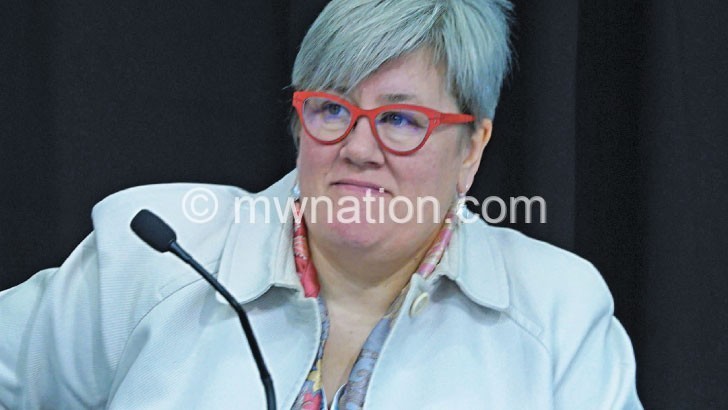UN experts for coal-free future
As Malawi switches to coal seams to boost its on-off electricity supply, experts have warned that this is not a smart investment for the future.
Speaking in a web conference on Thursday from United Nations (UN) headquarters in New York, Sustainable Energy for All chief executive officer Rachel Kyte said: “Coal isn’t part of the story of success going forward and it has never been a good option.”

In 2018, government sealed a loan deal with a Chinese bank for the construction of the 300-megawatt coal-fired power plant at Kam’mwamba in Neno to strengthen the ailing grid.
Community Energy Malawi executive director said “it is ironic” African countries are turning to China to fund coal-fired plants the Asian nation is cancelling to reduce air pollution and climate change.
Presently, just about 12 percent of the country’s population is connected to the hydropower grid.
However, the haves often endure blackouts that spanned 36 hours before the installation of diesel-powered generators in 2017.
Currently, government is pursuing the Kam’mwamba project to end power outages slowing the economy and increase access to electricity.
However, Kyte warns that burning coal for electricity is actually more costly and chokes both present and future generations’ ability to meet their needs.
She said Africa leaders must demand better energy line with Sustainable Development Goal seven (SDG7). The global goal to end poverty requires countries to ensure everyone uses affordable, reliable, sustainable and modern energy by 2030.
To Kyte, leaving coal in the ground is “Africa’s opportunity to build a different pathway from the one the developed countries of the past century took.”
She argued: “African leaders must work together in building the energy system that Africa needs. The continent has great potential to benefit from renewable energy.
“Africa has extraordinary renewable resources—hydro, wind and solar power—to deliver sustainable energy both on and off grid. It will be very important to take this chance.”
Kyte, the UN Secretary General Antonio Guterres’ special advisor on SDG7, said African leaders need a unified voice to move away from fossil fuels.
In May, the UN chief implored countries to build no new power plants after 2020.
He said the world must dramatically change the way it powers factories, vehicles and homes to limit future global warming.
“The alternative would mean a catastrophic situation for the whole world,” he said.
During the UN Climate Action Summit slated for September 23 in New York, Guterres will ask world leaders “to do much more to reverse the present energy trends and to defeat the climate change”.
But Kyte says that the pace “to achieve the speed and scale that is necessary to reach the global goals”, including the shift from fossil fuels, remains slow.
“The political will is not at the highest point. Actually, it is much lower than countries demonstrated when we signed the Paris Agreement [to reduce global warming],” she said.
Luis de Alba, Guterres’ special envoy on this month’s climate talks, asked all world leaders “to come to the summit with “clear, concrete and ambitious plans to address the worsening climate change”.
He said no one must be left behind in the transition from fossil fuels to clean energy.
But Malawi’s revised National Energy Policy, the country’s roadmap in the global shift, lists coal among solutions to eliminate the prevailing energy poverty. “The good news,” says Kyte, “is that it is increasingly becoming difficult to finance coal projects anywhere in the world. Most planned projects are being cancelled before they are commissioned as banks and development partners are curtailing financing for unclean energy.”





